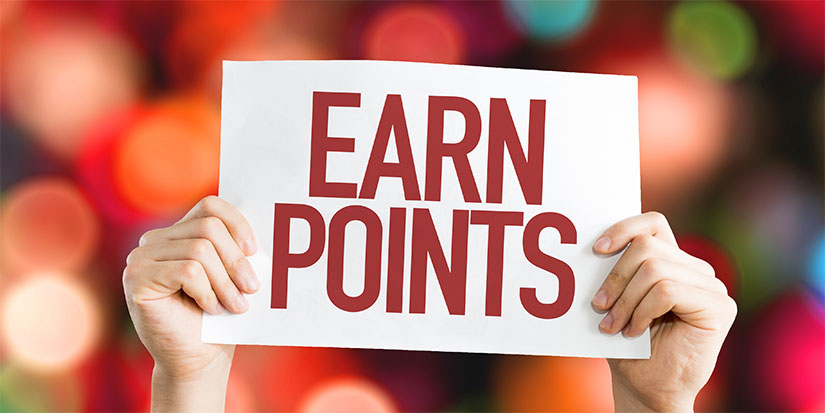
Points and Miles
I’m sitting here writing to you from my couch in my living room, where my cat Wendy is washing up and getting ready to go to sleep. Wendy is a 17-pound calico, and she loves me. She is always sitting beside me on the couch. This is how I write most of my newsletters, actually: surrounded by cats.
I have status on American Airlines, and it’s because I typically fly out of the Myrtle Beach airport, and American handles at least 50% of the traffic out of there. I fly a lot, but not great distances—no international flights last year, and only one or two flights to the West Coast.
So, it is difficult to accumulate miles. But American (and most of the other airlines) changed its rewards program into a combination of miles flown and dollars spent on the credit card, so with the purchase of about $25,000 in furniture for the new house, it put me over the top and into Platinum Pro territory. I have about 410,000 miles at American and 250,000 points with AMEX.
Here is the thing with miles and points: People spend a lot of mental energy trying to figure out how to get the miles and points, and then they get the miles and points but never use them. Eventually, they expire worthless. Even if they don’t, they are meant to be used, right?
I make a point of using the points. I burned up 100,000 AMEX points getting a hotel in Vegas last year, and I will get the occasional free flight to Connecticut to visit family. I was sitting next to a woman on a flight once who opened her American app in front of me. She had well over a million miles. Gee whiz—use those things! That’s what they are there for.
But the other thing about points and miles is that it doesn’t make any sense to focus on them if you are carrying a balance on your credit card.
Here is the math:
100 points is worth roughly $1–$2 in benefits.
You spend $20,000 to get 20,000 points that are worth $200.
But you’re paying 20% interest on that balance, which comes out to $4,000 a year.
If you carry a balance for even one month, it completely negates the benefits of the points.
|
We'll just leave this here: http://www.BuyNoWorries.com. Best, The Jared Dillian Money Team |
Slick Marketing
There are a lot of credit card commercials out there. I am thinking of the Capital One commercials, in particular. What do the credit card commercials advertise? The most points!
Have you ever seen a credit card company advertise the lowest interest rates? No, because that’s boring. But crucially, that would make the most difference to the largest number of people.
They get to brag about how they are giving you 1% back on your purchases while they are charging you 20% interest. The greatest trick the Devil ever pulled was convincing the world he didn’t exist.
If you are like me and never carry a balance on your credit card, then sure, shop around for the card with the best points. If you are a dummy and use credit cards to borrow money, then you should care about which card has the lowest interest rate.
I had a USAA card for years that had no points but only charged 8% interest. I got rid of it. The 8% interest was of no benefit to me. If I was in debt up to my eyeballs, I might have felt differently.
Increasing Consumption
The other thing to remember about points and miles is that you’re not really getting free stuff.
Let’s say you use miles to book a trip to Miami. Well, now you are going to have to get a hotel, you are going to be paying for Ubers, and you are going to have to go out to eat. You will end up spending more money than if you had not taken the trip in the first place. It’s not as if you’re saving money with points and miles. I mean, if you had to go to Miami anyway, you might as well get something for free, but if you’re planning a trip around getting a free flight, this is not what I would characterize as having a black belt in personal finance.
Wendy is still sitting next to me. And Wendy says there are five days until No Worries drops. Many of you have already ordered—thank you! Many of you have not. The book is $28. You’ll spend four times that going out to eat, and then flush it away to an undisclosed location the following morning.
I know, I know, you have to read a book; it’s a time commitment. It might be the most worthwhile four hours of your life. Read No Worries and see what this thing is all about. We’re going to help people lead a stress-free financial life, one person at a time.

Jared Dillian, MFA
|